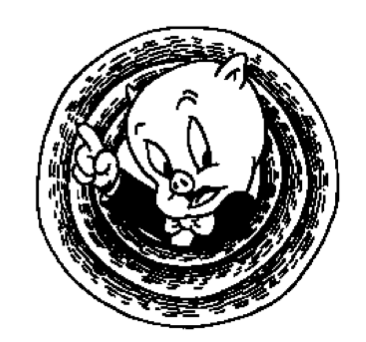I. Nothing to Lose
When I was six, I put myself on a diet. I stopped eating sweets and forbade my family from using words like “large,” “hamburger,” or “lunchtime.” My parents indulged the phase, thinking up new ways of saying things. A plump friend had diabetes and I wanted to know what that was, but “sugar” and “eating” were off-limits so my mom told me “she has the opposite of what you have.”
I was obsessed with the nine-hundred-pound man who had a heart attack in bed and then had to be craned out of his apartment. My sister and I would fantasize about the logistics: did they have to knock down the walls? How did they attach him to the machine? Was he just hanging there for a while? Soon “crane” was not OK, taking on a definition something like “tool used to lift, then dispose of, obese man who has died from eating too much.”
I thought of fat people as giggly Santas who weren’t quite human. On the old Fat Albert show, the animated hero’s stomach is so big and elastic he seems to boomerang around the neighborhood—tripping, falling, walking into people—without a scratch. When he plays the whale in a community theater production of Moby-Dick, his costume explodes and he flies off the stage, squashing the audience.
Last year, embarking on a dozen books with obese protagonists, I imagined I’d come upon more mature ways of thinking about fat. I’d read a couple of Y.A. books about chubby middle-schoolers who got mooed at, but I thought literary novels would be more nuanced, self-righteous—the equivalent of the rallying cry in the 1973 Fat Liberation Manifesto: “FAT PEOPLE OF THE WORLD, UNITE! YOU HAVE NOTHING TO LOSE….”
But there’s a difference between the politics and literature of obesity. Nomy Lamm, one of the leaders in the size-acceptance movement—a self-described “badass fatass jew dyke amputee”—argues that blubber is largely a matter of genetics, not consumption. In her now defunct ’90s ’zine, I’m So Fucking Beautiful, she writes that “Fat is punk! Fat people are rebelling against societal standards!” Yet many overweight characters turned out to be just as complacent and cartoon-like as the ones I imagined hanging from cranes. There’s no question about how they got so big. “The smell of pig meat warmed my heart,” says Anthony, the hero of Victor LaValle’s The Ecstatic, “I wasn’t fat because of any thyroid condition.”
Obese heroes and heroines are often just what readers expect them to be. Their bodies seem made out of food: they have “cauliflower-shaped” afros, “sausage-like” minds, flesh that “drips like hot fudge off a sundae.”...
You have reached your article limit
Sign up for a digital subscription and continue reading all new issues, plus our entire archives, for just $1.50/month.
Already a subscriber? Sign in





